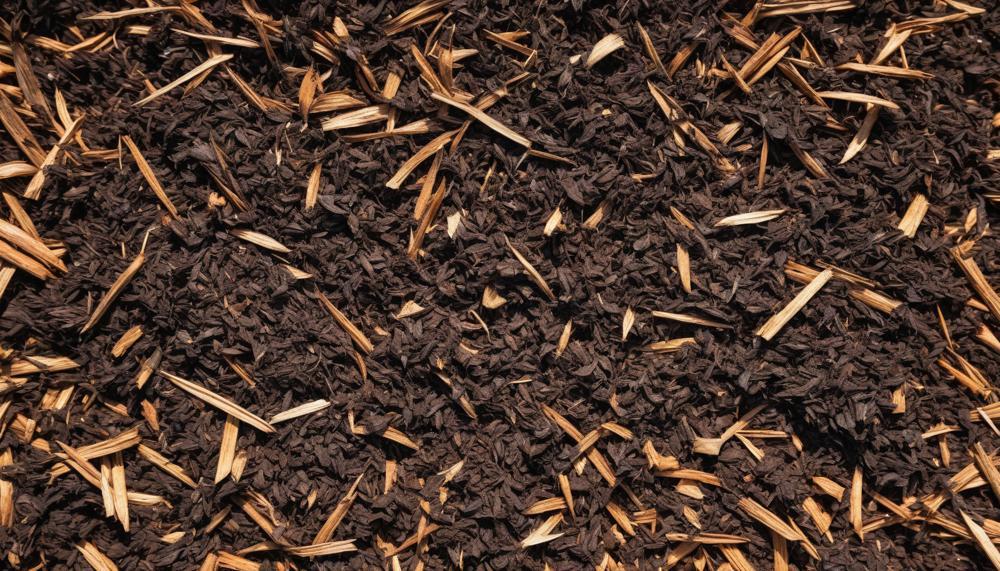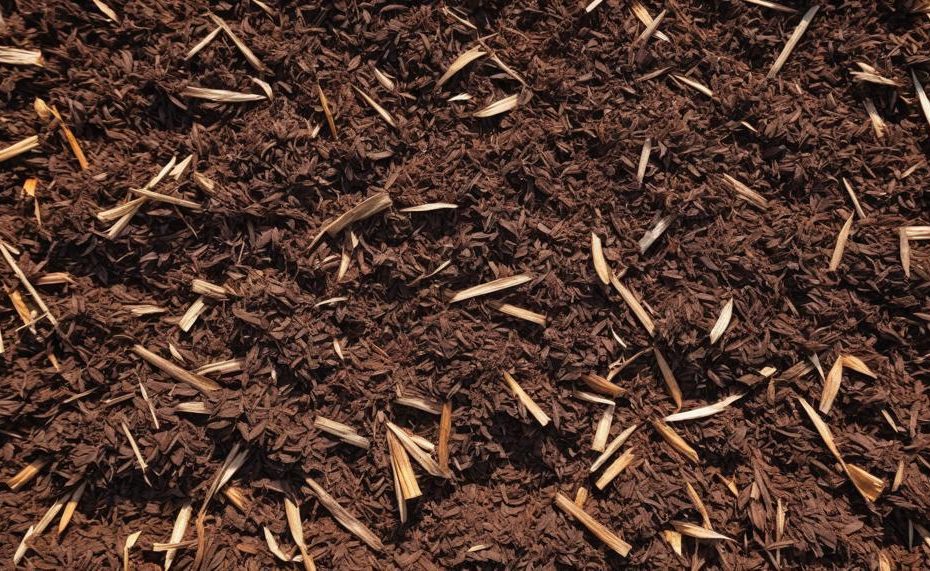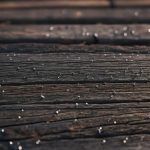Yes, you can dispose of old mulch in several ways, ensuring your garden stays healthy and your environment clean. Proper mulch disposal is essential to prevent pests, diseases, and mold, and to comply with local regulations.
Contents
Key Takeaways:
- Composting: Turn old mulch into nutrient-rich soil amendment at home or at a compost facility.
- Recycling: Some mulches can be recycled. Check with local recycling centers for guidelines.
- Landfill Disposal: If composting or recycling isn’t an option, place old mulch in a sturdy bag for landfill disposal.
- Prevent Pests and Mold: Dispose of old mulch before it attracts pests or becomes moldy.
- Check Local Regulations: Ensure your disposal method complies with local laws.
- Safety First: Handle mulch safely to avoid injury and don’t dump it in unauthorized areas.
Proper mulch disposal not only keeps your garden thriving but also protects the environment. Whether you choose to compost, recycle, or use landfill options, these methods help maintain a healthy garden ecosystem and community. Ready to dig into the details? Let’s explore the best ways to dispose of old mulch responsibly.
What Is Old Mulch?
Old mulch refers to mulch that has been in your garden for an extended period, typically over a year, and has begun to decompose. As mulch ages, it loses its effectiveness in providing nutrients, suppressing weeds, and retaining soil moisture.
Moreover, old mulch can attract pests, harbour diseases, and become a breeding ground for mold and mildew. This makes it essential to replace old mulch to maintain a healthy garden environment.
Here’s a detailed breakdown of why old mulch needs disposal and how to go about it:
| Issue | Description | Action |
| Pests | Old mulch can attract insects and rodents, which can damage plants and spread diseases. | Replace old mulch regularly to deter pests. |
| Diseases | As mulch decomposes, it can become a breeding ground for fungal diseases and pathogens. | Dispose of old mulch to prevent the spread of diseases. |
| Mold and Mildew | Decomposing mulch often harbours mold and mildew, which can harm plants and create unsightly garden beds. | Remove and replace mulch to avoid mold and mildew issues. |
| Nutrient Depletion | Over time, mulch breaks down and loses its nutrient content, making it less effective for soil health. | Replenish mulch annually to ensure soil remains nutrient-rich. |
| Aesthetics | Old mulch often looks faded and unsightly, diminishing the garden’s visual appeal. | Refresh mulch to keep the garden looking vibrant and well-maintained. |
Disposal Methods:
- Composting: The best option, turning old mulch into nutrient-rich compost for future use. Learn more about composting from the Wikipedia page on compost.
- Recycling: Some local compost facilities accept old mulch. Check with your municipality for details.
- Landfill: If composting and recycling aren’t options, dispose of old mulch in a sturdy bag and follow local landfill guidelines.
Safety Tips:
- Always follow local regulations and guidelines for disposal.
- Use designated disposal sites if available.
- Avoid burning or dumping mulch in wooded areas to prevent environmental damage.
Removing Old Mulch for Disposal
The best method for removing and disposing of old mulch in your garden or landscaping involves several key steps to ensure effectiveness and safety. Here’s a detailed guide:
Preparation
:
- Gear Up: Wear gloves to protect your hands from sharp objects and potential pathogens.
- Tools Needed: You’ll need a rake, shovel, tarp or container, and yard waste bags.
Removal Process
:
- Gradual Removal: Start by gently raking the mulch to break up any clumps. Ensure you keep a safe distance from your plants to avoid damaging their roots.
- Scoop and Collect: Use a shovel to scoop the loosened mulch onto a tarp or into a container. This helps in efficiently gathering the mulch without scattering it all over.
- Brush Away Residues: Carefully brush away any remaining mulch around the base of your plants. Add this to your collection on the tarp or in the container.
Disposal
:
- Yard Waste Bag: Place the collected mulch into a yard waste bag. Make sure not to overfill the bag to avoid tearing.
- Composting: If the mulch is untreated wood, consider composting it. This can enrich your soil and reduce waste. For more information on composting, visit Wikipedia’s Compost Page.
- Trash Disposal: If composting is not an option, dispose of the mulch in your regular trash or designated yard waste bin.
Reusing Old Mulch
:
- Natural Fertilizer: You can reuse old mulch by raking it into the soil. This can help improve soil fertility and structure.
Before Adding New Mulch
:
- Loosen Old Mulch: If you’re planning to add a new layer of mulch, ensure the old mulch is not compacted. Loosen it with a rake to promote better integration with the new mulch.
Disposing Mulch in a Yard Waste Bin
The most environmentally friendly way to dispose of old mulch in a yard waste bin is by ensuring it is natural and untreated. This includes materials such as wood chips, straw, hay, and bark. Avoid disposing of dyed or plastic mulches like tarps and landscape fabrics in yard waste bins, as these should be handled separately.
If the mulch is 100% wood, consider composting it naturally at home. While some gardening experts caution against adding wood chips to compost piles, it can still be a viable option for enriching your garden soil. Always check local guidelines for disposing of dyed mulch, and if needed, take it directly to a waste management facility.
For ease of disposal, you can put old mulch in a yard waste bag and place it on the curb for collection with other yard waste. This method ensures proper handling and recycling by local waste management services.
| Material | Disposal Method | Notes |
| Natural Wood Chips | Yard Waste Bin / Compost | Ensure untreated for yard waste bin; check local composting guidelines |
| Straw/Hay | Yard Waste Bin / Compost | Untreated materials only |
| Bark | Yard Waste Bin / Compost | Untreated bark is ideal for composting |
| Dyed Mulch | Waste Management Facility | Avoid placing in yard waste bin; check local disposal rules |
| Plastic Mulch | Waste Management Facility | Not suitable for yard waste bins |
Disposing of Wood Mulch
Disposing of old wood mulch in an environmentally-friendly manner can be straightforward and beneficial for your garden and the environment. Here are some top options:
Composting
:
- Composting is the most effective way to dispose of old mulch. By composting, you convert the mulch into a nutrient-rich soil amendment, enhancing soil health and fertility.
- Add mulch to your compost pile in layers, alternating with green materials like grass clippings or kitchen scraps to balance the carbon-nitrogen ratio.
Recycling
:
- Many local recycling centers accept wood mulch. Check with your local facilities to see if they process yard waste. Some centers will repurpose the mulch for community projects or as biomass fuel.
- Always ensure the mulch is clean and free from contaminants before recycling.
Mulch Reuse
:
- If the mulch is still in good condition, you can reuse it in your garden. Spread a thin layer around trees, shrubs, or flower beds. It can help retain moisture, suppress weeds, and regulate soil temperature.
Donation or Giveaway
:
- Offer your old mulch to neighbors or local community gardens. Many gardeners are happy to receive free mulch for their projects.
- Use social media or community boards to find takers.
Designated Disposal Sites
:
- Some municipalities have designated yard waste disposal sites. These sites often compost or process organic materials into useful products.
- Always follow local regulations when disposing of mulch at these sites.
Burning (if legal)
:
- In some areas, burning yard waste, including mulch, is legal and controlled. However, this method should be used sparingly due to the environmental impact of smoke and emissions.
- Check local laws and regulations before considering this option.
How to Dispose of Dyed Mulch
Proper disposal of dyed mulch is crucial to prevent environmental harm. Here are some eco-friendly methods:
| Method | Details | Considerations |
| Reusing | Utilize in less visible garden areas. | Spread thinly to promote natural breakdown. |
| Composting | Include in compost if dye is non-toxic. | Balance with green materials for effective composting. |
| Municipal Yard Waste Programs | Drop off at local facilities. | Check municipal guidelines and schedules. |
| Mulch Recycling Services | Recycle through local services. | Verify service availability in your area. |
| Giving Away | Offer to community members or gardens. | Post on community boards or online platforms. |
By following these methods, you contribute to sustainable gardening practices and help maintain a healthier environment.

What Can I Do with Old Mulch Instead of Disposing of It?
There are several alternative uses for old mulch that can benefit your garden and the environment. Some options include reusing it in less visible areas, composting it, utilizing municipal yard waste programs, recycling services, and giving it away to others who may find it useful.
One alternative use for old mulch is to reuse it in less visible areas of your garden. This can include using it as a base layer under new mulch or as a filler for flower beds. It can also be used to create paths or walkways in your garden. Reusing old mulch not only saves money, but also reduces waste and promotes sustainable gardening practices.
Another option is to compost the old mulch. Composting is a natural process of decomposition that turns organic materials, such as mulch, into nutrient-rich soil. This can be done at home in a compost bin or pile, or through municipal composting programs. Composting old mulch not only diverts waste from landfills but also creates a valuable resource for your garden.
Using municipal yard waste programs is another way to properly dispose of old mulch. Many cities offer curbside pick-up or drop-off locations for yard waste, including old mulch. The collected yard waste is then turned into compost or mulch by the municipality. This is a convenient and eco-friendly option for disposing of old mulch.
Recycling services are also available for old mulch. Some companies specialize in recycling organic materials, including dyed mulch. They use specialized equipment to separate the dye from the wood chips, creating a product that can be used for other purposes such as animal bedding or fuel.
Lastly, consider giving away your old mulch to others who may find it useful. This could include neighbors, community gardens, or local farms. Old mulch can be used as a natural weed barrier or fertilizer in gardens and farms. This not only reduces waste but also supports sustainable gardening practices in your community.
Conclusion
Ensuring proper disposal of old mulch is vital for maintaining a healthy garden and protecting the environment. You have several effective options to choose from, each with its unique benefits.
Composting is an excellent choice, transforming old mulch into nutrient-rich soil amendments. This method recycles organic matter, enhancing soil fertility and reducing landfill waste. If you prefer, some local compost facilities can handle this for you.
Recycling is another viable route. Check with your local recycling centers, as some accept specific types of mulch, allowing it to be repurposed for community projects or as biomass fuel.
If composting or recycling isn’t feasible, landfill disposal is a practical alternative. Ensure you place the mulch in a sturdy bag to comply with local waste management guidelines.
Remember, timely disposal of old mulch prevents pest infestations and mold growth, crucial for maintaining garden health. Always adhere to local regulations to avoid unauthorized dumping and potential fines.
By choosing an appropriate disposal method, you contribute to a healthier environment and a thriving garden. Whether you compost, recycle, or opt for landfill disposal, these actions support sustainable gardening and community well-being.





